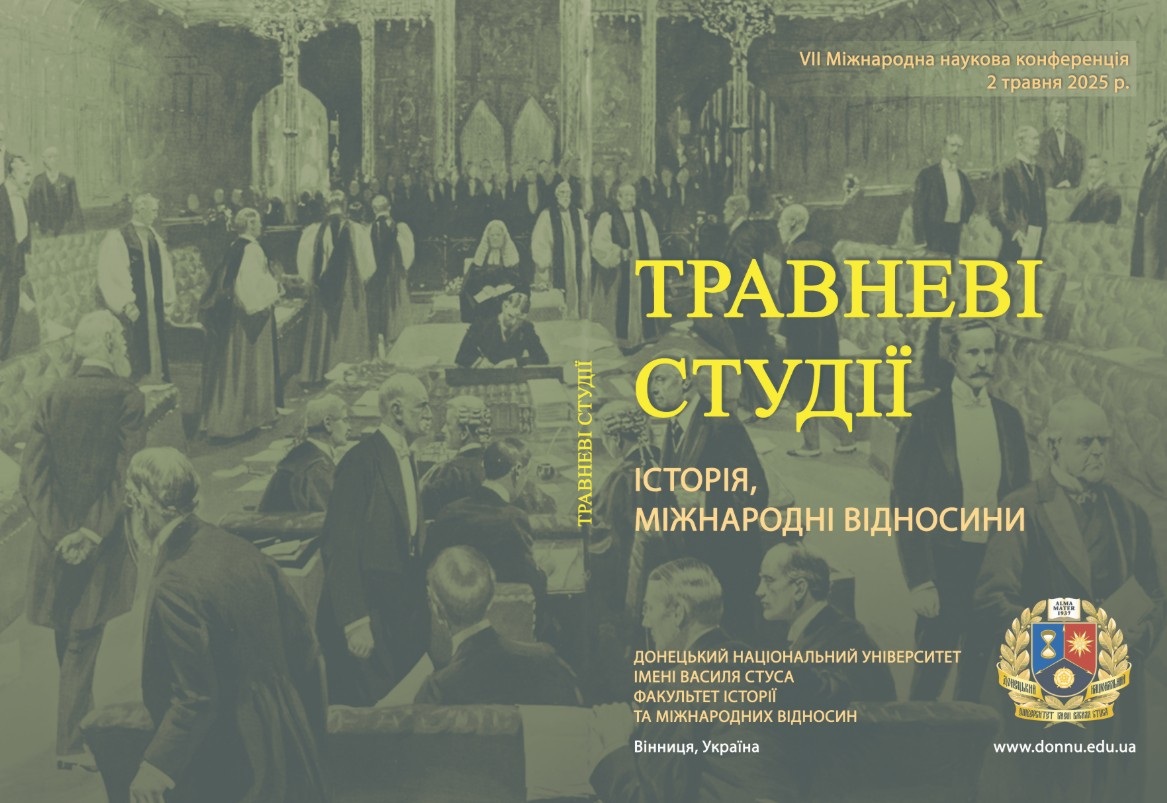The role of populist leaders in peace negotiations: pros and cons
Keywords:
populism, diplomacy, peace, negotiations, conflictAbstract
Populist leaders have increasingly become central figures in global politics, often emerging in times of economic distress, social unrest, and political dissatisfaction. Their leadership style, characterized by direct appeals to “the people” against perceived corrupt elites, can reshape the dynamics of peace negotiations in both constructive and destructive ways [12]. The involvement of populist leaders in peace negotiations raises questions about their ability to foster lasting stability, as their emphasis on popular support and nationalist rhetoric can either unlock new diplomatic opportunities or deepen existing divisions [4]. Understanding the role of populist leaders in peace negotiations requires examining how their political strategies, leadership styles, and public appeal interact with the complex processes of diplomacy.
References
Bäck H., Debus M., Imre M. Populist radical parties, pariahs, and coalition bargaining delays. Party Politics. 2024. Vol. 30(1). P. 96–107.
Bergmann J., Keijzer N., Hackenesch C. Blackmailing and identity profiling? The behaviour of populist radical right governments in EU development policy. Politics and Governance. 2024. Vol. 12. P. 1–18. URL: https://www.cogitatiopress.com/politicsandgovernance/article/view/ 8180/3797
Blanc E. Transatlantic Diplomacy in the Age of Populism: A Story of Resilience? Political Communication and Performative Leadership: Populism in International Politics. Cham: Springer International Publishing, 2023. P. 299–315.
Chueri J. An emerging populist welfare paradigm? How populist radical right‐wing parties are reshaping the welfare state. Scandinavian Political Studies. 2022. Vol. 45(4). P. 383–409.
Destradi S., Cadier D., Plagemann J. Populism and foreign policy: a research agenda (Introduction). Comparative European Politics. 2021. Vol. 19(6). P. 663–682.
Destradi S., Plagemann J. Do populists escalate international disputes? International Affairs. 2024. Vol. 100(5). P. 1919–1940.
Destradi S., Plagemann J., Taş H. Populism and the politicisation of foreign policy. The British Journal of Politics and International Relations. 2022. Vol. 24(3). P. 475–492.
Eiran E., Ish-Shalom P., Kornprobst M. Populism in international relations: champion diplomacy. Journal of International Relations and Development. 2025. Vol. 28. P. 80–104.
Jenne E. K. Populism, nationalism and revisionist foreign policy. International affairs. 2021. Vol. 97(2). P. 323–343.
Landau D. M., Lehrs L. Populist peacemaking: Trump’s peace initiatives in the Middle East and the Balkans. International Affairs. 2022. Vol. 98(6). P. 2001–2019.
Müller J-W. Populism and the Crisis of Liberal Democracy. Project Syndicate [online]. 05.01.2016. URL: https://www.project-syndicate.org/onpoint/opponents-and-defenders-of-politicalliberalism-by-jan-werner-mueller-2024-01
Schmidtke O. The ‘will of the people’: The populist challenge to democracy in the name of popular sovereignty. Social & Legal Studies. 2023. Vol. 32(6). P. 911–929.
Sorensen L. Populism in communications perspective: Concepts, issues, evidence. Heinisch R., Holtz-Bacha C., Mazzoleni O. (eds.) Political Populism: A Handbook. International Studies on Populism, 3. Nomos, 2021. P. 383–398. URL: https://eprints.whiterose.ac.uk/id/eprint/ 180640/4/Sorensen__2ndEd_Author_Accepted_Manuscript.pdf
Subedi D. B. Rethinking peacebuilding in the age of populism. Peace Review. 2022. Vol. 33(4). P. 495–505.
Thiers C., Wehner L. E. The personality traits of populist leaders and their foreign policies: Hugo Chávez and Donald Trump. International Studies Quarterly. 2022. Vol. 66(1). 11 p. URL: https://surl.li/yprpgl

